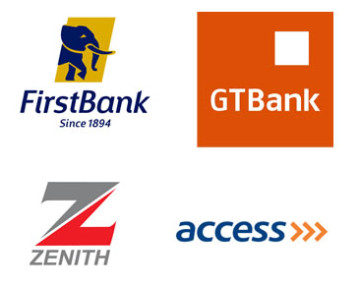Eight of the leading banks in the country shows that they generally paid more income tax in the first six months of this year, compared with the same period of 2018.
Specifically, the eight banks – Zenith Bank, Guaranty Trust Bank (GTBank), United Bank for Africa (UBA), Access Bank, FBN Holdings, Stanbic IBTC, Fidelity Bank and FCMB – paid a total of N82.9 billion income tax in H1 ’19, which is 10.02 per cent or N7.5 billion more than the total of N75.3 billion paid for the same period of last year.
Under Nigerian laws, Companies Income Tax (CIT) is a tax on profits of incorporated entities in the country. It also includes the tax on profits of non-resident companies operating in Nigeria.
The tax is paid by limited liability companies, including public limited liability companies. It is therefore commonly referred to as corporate tax and it is one of the taxes administered and collected by the Federal Inland Revenue Service (FIRS).
The CIT rate is 30 per cent and assessed on a preceding year basis (i.e. tax is charged on profits for the accounting year ending in the year preceding assessment).
A breakdown of the eight banks lenders H1 ’19 results indicates that Zenith Bank paid the most tax at N22.8 billion from a pre-tax profit of N111.7 billion. The tax paid by the banks during the period was, however, 11.03 per cent less than the N25.6 billion it paid in the same period of last year.
Guaranty Trust Bank followed with a tax payment of N16.7 billion from a profit before tax of N115.8 billion. This is 18.53 per cent more than the N14.05 billion it paid in the corresponding period of 2018.
UBA paid income tax of N13.5 billion from a pre-tax profit of N70.3 billion. The results show that the tax UBA paid in the first half of this year was 5.67 per cent less than the N14.4 billion it paid in the same period of last year.
Also, during the period under review, Access Bank paid a tax of N11.1 billion from a profit before tax of N74.1 billion. The amount paid as the tax was 78.39 per cent more than the N6.2 billion it paid in H1 ’18.
Similarly, Stanbic IBTC paid a tax of N8.4 billion from a pre-tax profit of N44.7 during the period under review. The Tier 2 lender had, in the comparative period of 2018, paid a lower tax of N7.6 billion.
FBN Holdings’ H1 ’19 results show that it paid N8.2 billion as tax from a profit before tax of N39.9 billion. The numbers further indicate that the Tier 1 lender paid more tax in the first six months of this year compared with the N5.4 billion it paid for the same period of last year.
Fidelity Bank’s results for the period under review also show that it paid a tax of N1.4 billion from a profit before tax of N15.1 billion. The figures further indicate that the lender paid more tax this year compared with the N1.2 billion it paid in the corresponding period of last year.
Of the results reviewed by this newspaper, FCMB paid the least tax of N836 million in H1 ’19 from a pre-tax profit of N8.82 billion. The amount paid by the lender was also lower than the N929 million it paid as tax in the same period of 2018.
As part of efforts to ensure that the fate of the nation’s economy is no longer primarily determined by developments in the international oil market, the Federal Government has in recent years focused on taxation as a tool for revenue generation.
In fact, in the last two years, the government’s efforts to use foreign borrowing to meet its recurrent and capital requirements, have been severely criticised by financial experts, who argue that the country could be once again heading for a debt trap.
Still, the government does not appear to be succeeding in his quest to increase revenue generation through taxes.
According to some estimates, Nigeria has one of the world’s lowest ratios of tax to Gross Domestic Product (GDP). That is the total amount of tax collected as a proportion of GDP – the value of the country’s goods and services.
READ ALSO: NNPC strikes $838m deal with CPDC for OML 65
In 2016, for instance, the Organisation for Economic Co-operation and Development (OECD) put Nigeria’s tax to GDP ratio at six per cent.
The tax-to-GDP ratio in South Africa was 29 per cent, Ghana 18 per cent, Egypt 15 per cent and Kenya 18 per cent, the OECD said.
The average for OECD members – which includes all the advanced economies – was 34 per cent.
Analysts attribute Nigeria’s low tax to GDP ratio to factors such as lack of expansion of the tax net, partial enforcement of tax laws, bureaucratic tax procedures and lack of transparency and accountability on the part of the country’s tax authorities.
SOURCE: new telegraph




 Premier League
Premier League